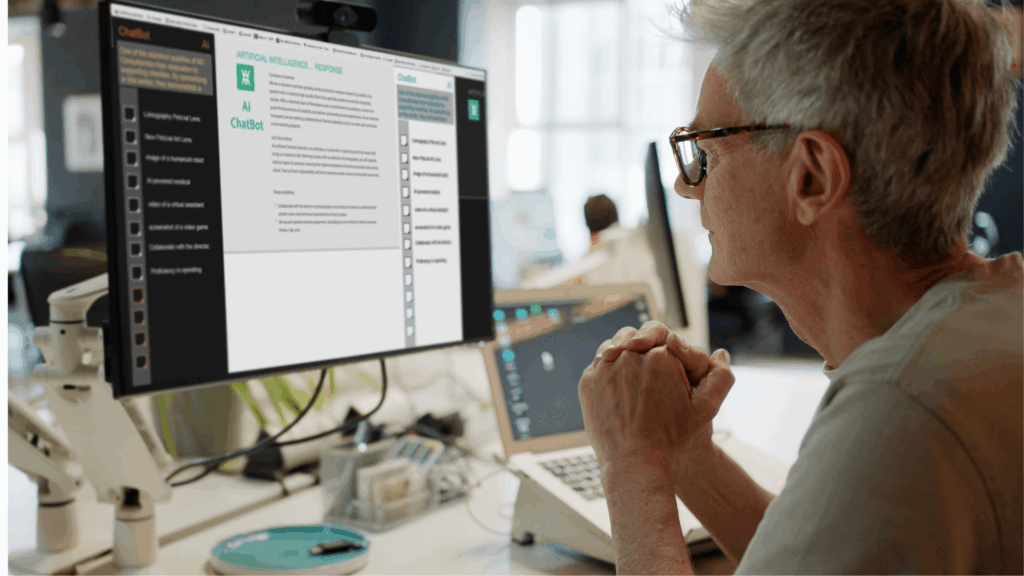The New Era of Nursing Home Litigation
Nursing home neglect and abuse cases stand among the most complex and emotionally charged areas of personal injury law. Each case represents a vulnerable life impacted by systemic failures, and the evidence required to prove negligence is buried deep within voluminous medical records, staff logs, and regulatory documentation.
For decades, law firms have relied on teams of paralegals to painstakingly review thousands of pages of medical and facility records to uncover the truth. But as the volume of cases grows and timelines tighten, this traditional model is no longer sustainable.
Today, leading plaintiff firms are turning to legal-grade artificial intelligence to uncover patterns of neglect faster, strengthen case strategies, and deliver justice more efficiently than ever before.
1. The Complexities of Nursing Home Neglect Cases
Proving negligence in a nursing home environment demands precision. Unlike standard injury claims, these cases involve:
- Multiple medical providers and specialists
- Lengthy chains of care and documentation
- Inconsistent charting practices between facilities
- Overlapping causes of injury or decline
A single resident’s file can exceed 1,500 pages, containing nurse’s notes, medication records, wound assessments, and transfer summaries. Manually organizing and analyzing this information is not just time-intensive, it creates opportunities for critical details to be missed.
AI now changes that reality.
2. How AI Streamlines Nursing Home Case Preparation

AI-driven legal platforms like Anytime AI are designed specifically to support plaintiff attorneys handling high-volume, medically complex cases. By automating the most repetitive aspects of case preparation, AI empowers legal teams to focus on strategy rather than administration.
Key applications include:
- Medical Chronologies: Automatically generate detailed, date-ordered summaries of treatment events, hospital transfers, and injury progressions.
- Document Intelligence: Identify key data points, such as pressure ulcer development, dehydration indicators, or medication mismanagement, across thousands of records.
- Demand Letter Drafting: Transform case evidence into persuasive narratives for negotiation or mediation.
- Discovery Review: Quickly identify inconsistencies, omissions, or potential spoliation within discovery responses.
By automating these workflows, law firms can process four times as many cases with the same team, reduce turnaround times by up to 80%, and maintain a higher degree of accuracy and consistency.
3. Detecting Patterns of Neglect and Strengthening Liability
AI doesn’t just summarize, it analyzes. Modern systems can detect hidden trends that might otherwise go unnoticed, such as:
- Repeated falls or unexplained injuries within a specific timeframe
- Medication discrepancies across shift changes
- Patterns of malnutrition, dehydration, or infection
- Staffing shortages correlating with adverse events
By surfacing these insights early, attorneys can pinpoint the root causes of negligence and develop stronger liability arguments. This data-driven clarity supports expert testimony, increases settlement leverage, and enhances credibility before juries and adjusters alike.
4. Accelerating Case Timelines and Client Outcomes
Families affected by nursing home abuse and neglect often wait years for resolution. Every month that passes delays both accountability and closure.
AI-enabled legal teams are rewriting that timeline. By automating medical record review and case summarization, plaintiff firms can move from intake to filing in a fraction of the time. This efficiency doesn’t just increase firm capacity, it restores confidence for clients who have already endured systemic failure.
When AI handles the administrative burden, attorneys are free to do what they do best: advocate, negotiate, and litigate.
5. Data Integrity, Security, and Compliance
Plaintiff firms handling sensitive health data must ensure full compliance with HIPAA and professional confidentiality standards.
Leading platforms, including Anytime AI, are built with:
- End-to-end encryption
- Audit-trail tracking for document integrity
- Secure cloud storage with zero data sharing
AI becomes not only a productivity tool but also a safeguard for maintaining client trust and regulatory compliance.
6. Why Forward-Thinking Firms Are Adopting Anytime AI

Anytime AI is engineered specifically for plaintiff law firms handling complex injury and negligence cases, including nursing home litigation. Firms that implement the platform report:
- 4× increase in case-handling capacity
- 80% reduction in medical record review time
- Higher settlement consistency through data-driven narratives
- Faster turnaround on discovery and demand letter preparation
In short: firms that integrate AI are setting the new standard for efficiency, accuracy, and advocacy in nursing home neglect litigation.
The Future of Elder Neglect Litigation Is AI-Driven
Nursing home abuse cases demand compassion, precision, and unwavering attention to detail. Artificial intelligence empowers law firms to uphold those values, at scale.
By automating documentation, surfacing hidden evidence, and accelerating case preparation, AI ensures that no sign of neglect goes unnoticed and no client waits longer than necessary for justice.
Your firm’s next breakthrough isn’t a new hire, it’s smarter technology.
Discover Anytime AI and see how leading plaintiff firms are transforming the way they handle nursing home cases, one record at a time.



